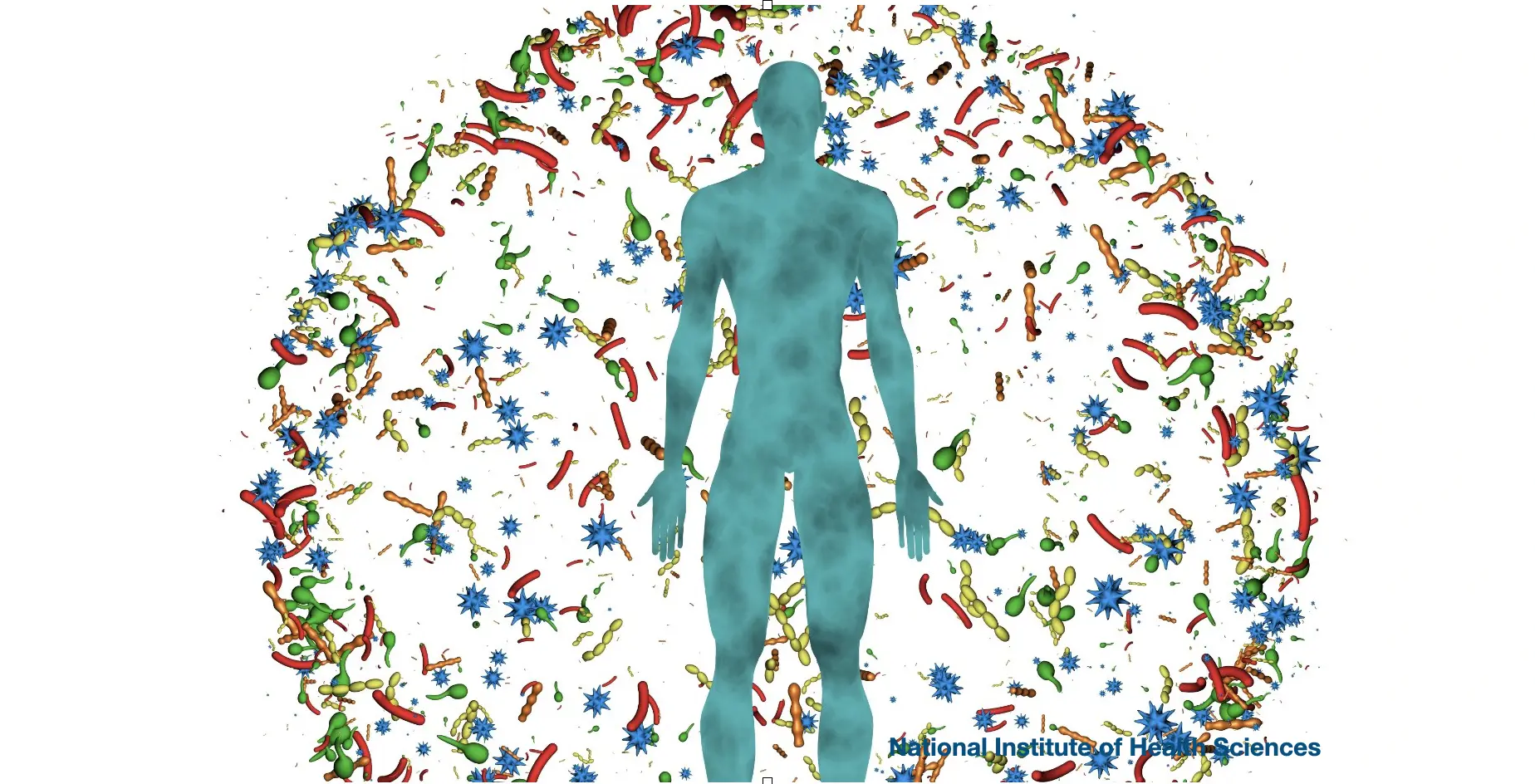Microbiome: Happy bugs, happy life! Do probiotics work?
A new frontier in our own bodies and what it may mean for our health

Will we someday say about our health, "It's the microbiome, stupid!"?
From mental illness, addiction, Alzheimers, cancer, heart and chronic disease to global warming, it seems there is nothing about our health that is not affected by the bugs who live inside us.
It's often cited we have more DNA in our biome's bacteria than we have in our cells - about 2 pounds worth. And whether they are well or ill-behaved largely depends on what we feed them , their fertilizer so to speak. Big business is hard at work creating probiotics to correct our flora, and yet there is no evidence they are able to do so (watch this great 2020 60 Minutes report). What works? Yes, prebiotics, i.e., food! Whole food plant-based in particular. Dr Gordon, the father of the microbiome, happily announced on this program "...a special supplemental mixture of nutrients containing chickpeas, soy, bananas, and peanuts can repair the damaged microbiome of malnourished infants". Hmm, imagine that!
It turns out, our biome likes what's healthy for both the planet and us. Yes, it's all connected!
Perhaps the earliest experiences we had with the malleability of our flora came with the advent of the rise of the diarrheal illness caused by clostridium difficile in the 1980s. Cases became commonplace as we got all too comfortable using antibiotics that destroy most of the bacteria in our gut, except one - c diff. It's unaffected by most antibiotics and can flourish and party when its neighbors are gone. It causes a serious case of diarrhea that can lead to a condition called toxic megacolon and death, mainly in older adults. Most cases are responsive to several less well-known antibiotics, but for those resistant or recurrent cases, we finally discovered stool transplants. I'm intimately familiar as all three of my children had this infection, and we almost took one to Boston for this then "experimental" cure. Today we have "poop pills," a far cry from the way transplants used to be done (I'll spare you the details).
Later, a study in 2013 showed when lean mice were housed with obese mice, the fatter rodents lost weight due to the "skinny bacteria" being swapped between them. But the weight loss only occurred when the lean and obese mice were fed a healthy diet that was high in fiber and low in fats. Good bacteria wouldn't be enough to make a person lose weight unless there was a corresponding change in diet. The era of gut biome research was kicked into full gear.
Now, it seems there is nothing our microbiome does NOT affect!. Bacterial genes produce proteins — including hormones, neurotransmitters, and molecules of inflammation — that affect how our body works.
Check out this video about fecal transplants and colitis, MS, depression, and alcoholism.
Cardiovascular and kidney disease are caused by bacteria that take the carnitine (largely found in red meat) and convert it into the artery-clogging and kidney-damaging compound TMAO.
They have been found to possibly play a role in colon cancer "...Fusobacterial DNA is found in nearly 50% of primary tumors. In addition, they discovered that
- fusobacterial DNA and proteins are found primarily in malignant cells, rather than in nearby nonmalignant cells;
- the bacteria actually invade malignant cells;
- the same bacterial DNA also is found in metastases from primary tumors;
- the bacteria can be cultured from primary and metastatic tumors.
More remarkably, human colon cancer cells that were positive for fusobacterial DNA often grew into tumors when implanted in mice and, when cells from those tumors were transplanted into other mice, they retained their bacterial DNA and grew into new tumors.
Most remarkably, when mice with tumors containing bacterial DNA were treated with metronidazole (to which Fusobacteria are sensitive), tumor growth and load decreased; this diminution did not occur after treatment with an antibiotic to which the bacteria were not sensitive. This remarkable study provides evidence that some cases of colon cancer - particularly right-sided lesions - might be caused by infection with Fusobacteria. This study even suggests that such tumors might be prevented and treated by antimicrobial agents, although proving that hypothesis obviously will require further study."
How about breast cancer? Yes, and there's a microbiome in breast tissue which we had always presumed to be sterile!
Microbiomes affect global warming - could it be?!
"If we could inoculate young animals with a low-methane microbiome, we have every reason to believe that will persist throughout life, which will lead to animals producing much less methane." (And if we feed cows seaweed instead of alfalfa? Almost complete elimination of methane by interfering with the enzyme responsible for methane production. Well, maybe not the biome, but thought that was fascinating role for our guts!)
Macular degeneration and other eye diseases
And on and on it goes.
The answer to a happy gut is soooooo simple! What keeps them thriving is what keeps us well is what helps the planet heal. Of course, other factors also play a crucial role such as exercise and lifestyle changes as per Dr. Ornish in his book "Undo it" $.
